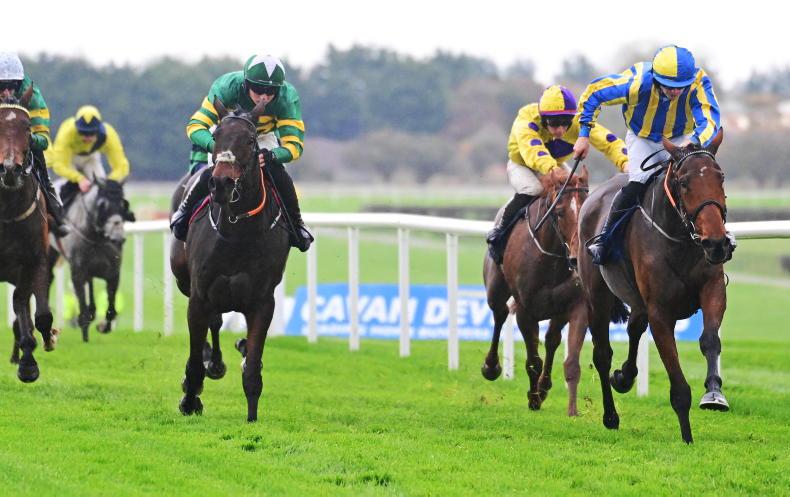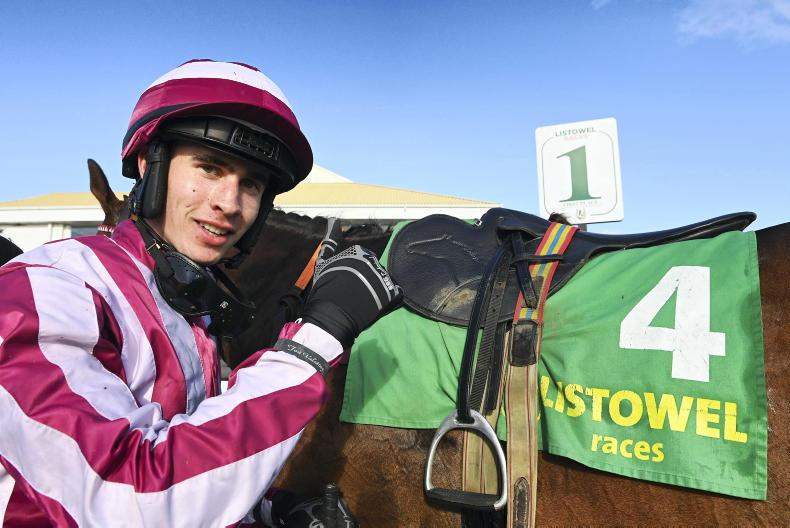In November, Betfair launched its one-of-a-kind charity initiative, the ‘Rachael Blackmore - Serial Winners Fund’, to benefit both the Injured Jockeys Fund and Irish Injured Jockeys. The fund currently stands at £205,000 and is expected to reach £250,000 by Grand National Day, Saturday, April 13th, when the fund will draw to a close. This weekly column seeks to shed some light on how jockeys have, and will continue to benefit from, the work the IIJ and the IJF do, and some of the services this contribution will support.
Tell us about an experience where mental strength played a crucial role in overcoming a challenging situation in your career to date.
A week after the Cheltenham Festival last year, I had a bad fall in Clonmel. The horse I was riding rolled over me and lacerated my liver. I had to spend a few days in hospital in Clonmel and then four weeks recovering. As a result I struggled a bit with keeping my weight down.
I had been booked to ride Fennor Cross for John McConnell in a premier handicap in Aintree and I only got the all-clear from Jennifer Pugh on the ferry over. After a lot of work to get my weight back down, I managed to give him a good ride and he got up and won.
How do you maintain focus and stay resilient amid all the highs and lows?
Thankfully, I have a very good support network, between my family and John McConnell. John wouldn’t hold it against me if I gave a horse a bad ride. As well as this, I always try not to dwell on the bad days and also try to enjoy the good days.
How has the ability to bounce back from disappointments contributed to your overall success as a jockey?
Your ability to bounce back from disappointments plays a huge part in your success. There’s more bad days than good ones in this game. When something goes wrong you have to analyse it and learn from it. You have to move on quickly or else you’ll be dwelling on your previous mistakes when riding in the following race.
What techniques do you use to manage stress and pressure before and during a race?
Before a race I try to work out what way the race is going to pan out. I also try to get familiar with the opposition and to learn as much as I can about the horse I am going to ride. I try not to let the occasion get to me, I could be riding in an 80-95 rated handicap or a big handicap in Cheltenham and I will always try to look at them the same way. As soon as I get the leg up and I get down to the start, any nerves or pressure that I was feeling go away, I always feel very calm during a race.
Are there specific mental exercises or routines you practice to enhance your mental strength?
I like having a routine. I like to get to the races nice and early, then I either walk or run the track. I like to study form, think about how the race will unfold and I try to learn about the horse I am riding by watching their replays or speaking to someone that has ridden them before. I always try to focus on controlling what I can control.
Can you recall a race where maintaining a positive mindset was pivotal to winning?
My first winner at Cheltenham at the December meeting in 2020. I rode John McConnell’s horse Some Neck. He looked beaten a mile from home but I was very positive as a young rider and just never gave up on him, I just kept at him and we managed to get up to win by a head.
How do you handle the weight of expectations, both from yourself and others?
I have always had quite high expectations of myself and I also try not to let what other people are expecting of me affect what I am doing. I know my limits and where I can improve. In this game there will always be someone coming from behind and people ahead of you that you are trying to match and be better than.
Are you a naturally confident person or is that something you have to work hard at?
I would say that I am naturally confident, especially when it comes to horses. I never worry about talking to owners or ringing up a trainer. Thankfully this has always come quite naturally for me. I don’t mind interviews or any media work, I actually quite enjoy it.
Thankfully most presenters in racing media ask the right questions and don’t put you under too much pressure.
What do you do to switch off?
I am not very good at switching off. During the summer I like to play a bit of golf. Golf lets me focus on how badly I am golfing at the time, which takes my mind off any bad rides. During our month off over the summer, my girlfriend and I usually head over to the sun for a week. This year, in early January, a big group of jockeys went skiiing in Val Thorens in France for a few days, which was great fun.
What message would you give to someone who is struggling to cope with pressure or disappointment in their professional life?
Just to stay focused, to control what you can control and not to worry about things out of your control. Your luck will change at some stage. When you’re not worrying about what could go wrong you’ll perform better.
Have you ever availed of support from the Injured Jockeys Fund or Irish Injured Jockeys?
Yes, they are brilliant, Jennifer Pugh is fantastic. Thankfully I have only been out injured once. It’s great to have a few quid coming in when you’re injured as well. They have recently hired a few more jockey coaches down in RACE. These coaches help us go through our rides, give us riding advice and help us to improve our technique while using their simulators.
CLICK HERE TO FIND OUT MORE ABOUT BETFAIR SERIAL WINNERS




 This is a subscriber-only article
This is a subscriber-only article
 It looks like you're browsing in private mode
It looks like you're browsing in private mode











SHARING OPTIONS: